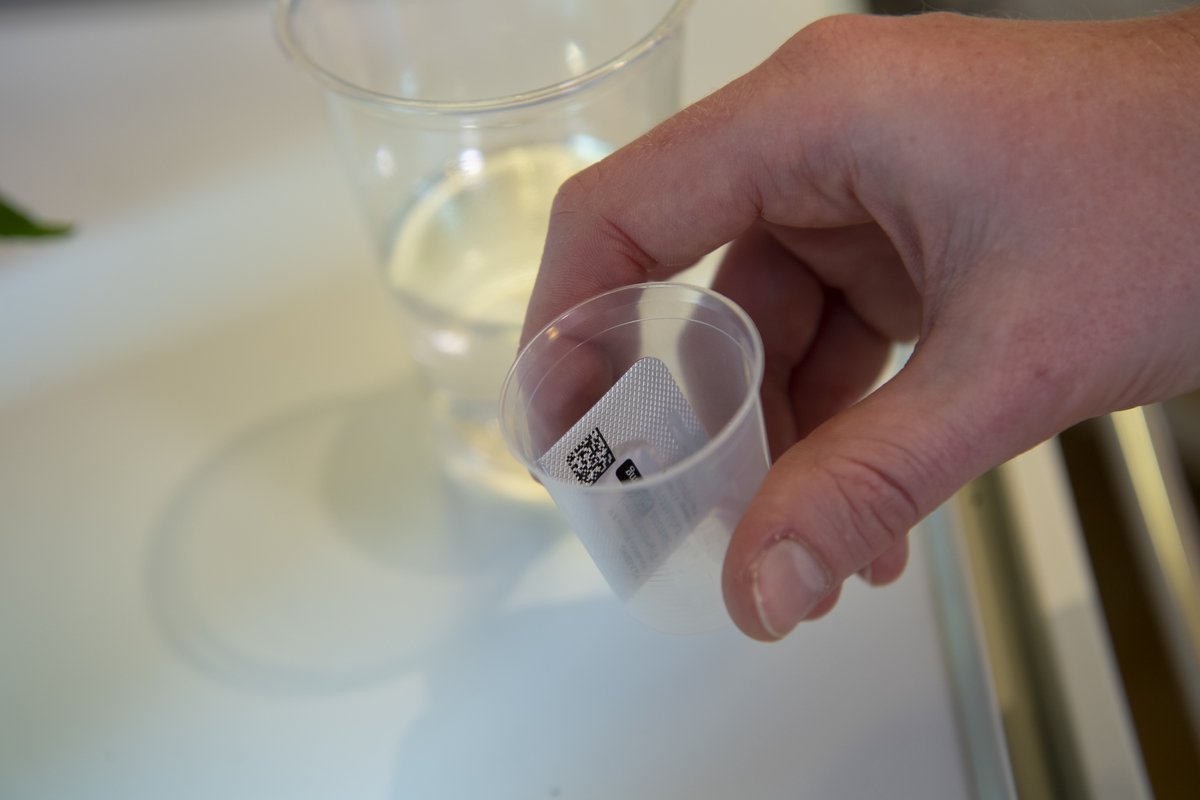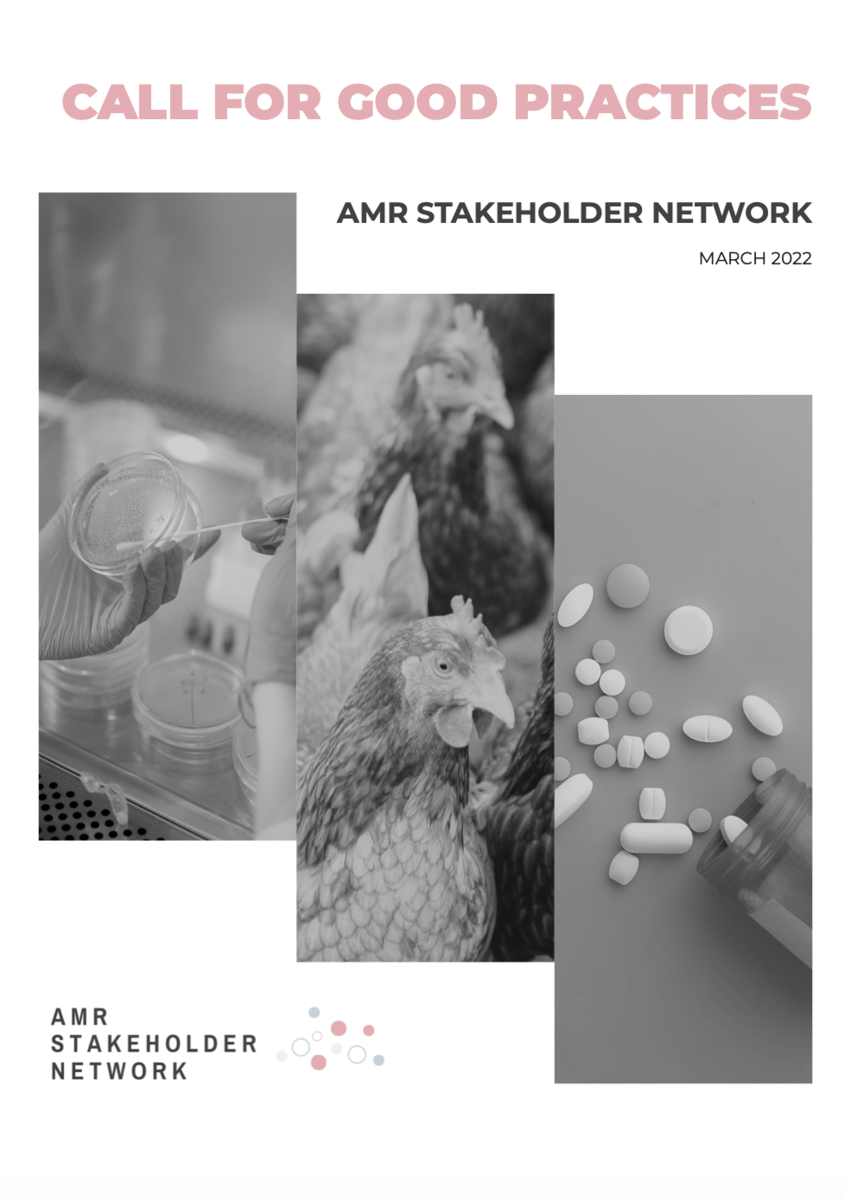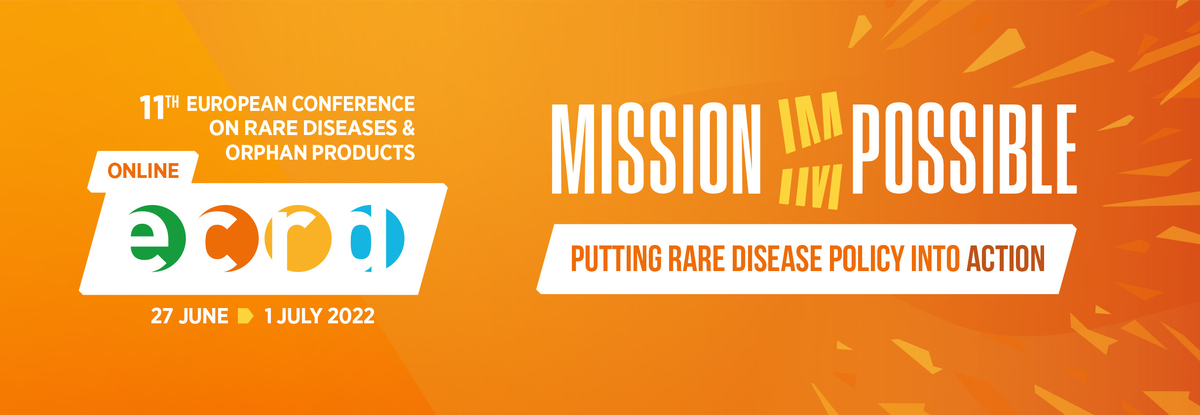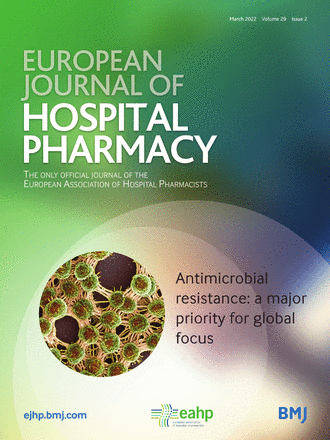EU Monitor 21 April 2022 - Participate in the survey on medication error prevention strategies!
The EAHP EU Monitor is a regular round up of news relevant to hospital pharmacy in Europe.
Contribute to the survey of EAHP's SIG for the Investigation of Medication Errors in Intensive Care Units
 At the end of March, the Special Interest Group (SIG) for the Investigation of Medication Errors in Intensive Care Units (ICUs) of the European Association of Hospital Pharmacists (EAHP) started to conduct research on medication error prevention strategies in intensive care settings across Europe. Until the 8th of May, healthcare professionals working in any intensive care setting involved with medicines and medication safety officers are encouraged to contribute to the survey activity of EAHP's SIG.
At the end of March, the Special Interest Group (SIG) for the Investigation of Medication Errors in Intensive Care Units (ICUs) of the European Association of Hospital Pharmacists (EAHP) started to conduct research on medication error prevention strategies in intensive care settings across Europe. Until the 8th of May, healthcare professionals working in any intensive care setting involved with medicines and medication safety officers are encouraged to contribute to the survey activity of EAHP's SIG.
Patient safety is a priority for healthcare organisations worldwide. Due to the complex nature of the ICU setting, specific strategies for improving medication safety are likely to be particularly important. EAHP's SIG for the Investigation of Medication Errors in ICUs is consequently looking to identify medication error prevention strategies both in use and being planned in ICUs across Europe, in order to develop policy recommendations for medication safety improvement.
The survey has received ethical approval from University College London Research Ethics Committee and all information provided by survey participants will be confidential and the anonymity of participants will be protected throughout the study. Participation is completely voluntary and participants can stop completing the survey at any time. It is also possible to skip questions. It should take approximately 10 to 20 minutes to complete the survey. Feedback can be shared until the 8th of May 2022 via one of the seven different language versions of the survey (English, Estonian, French, German, Italian, Slovenian and Spanish).
EAHP's SIG looks forward to receiving your input to the survey to identify examples of medication error prevention strategies in use and/or being planned in European ICUs.
Access the English version of the survey
https://easy-feedback.de/SIGSurveymedicationerrors/1449652/2x88c0
Access the Estonian version of the survey
https://easy-feedback.de/SIGsurveymedicationerrors/1453544/8LHzg3
Access the French version of the survey
https://easy-feedback.de/SIGMedicationerrorsFrenchtranslation/1453156/7h...
Access the German version of the survey
https://easy-feedback.de/SIGsurveymedicationerrorsGermantranslation/1453...
Access the Italian version of the survey
https://easy-feedback.de/SIGsurveymedicationerrorsItaliantranslation/145...
Access the Slovenian version of the survey
https://easy-feedback.de/s/1453648/Bb28RA
Access the Spanish version of the survey
https://easy-feedback.de/SIGsurveymedicationerrorspanishtranslation/1453...
EAHP's Special Interest Group shares recommendations for hazardous medicinal products
 In March, EAHP's first Special Interest Group (SIG) focusing on Hazardous Medicinal Products released the results of its work. The SIG was tasked with examining national strategies and requirements across Europe for the management of hazardous medicines, identifying best practices, promoting better sharing and implementation of these practices between countries and stimulating heightened awareness by governments and EU regulators of the critical impacts that hazardous medicinal products may have in relation to healthcare workers' and individuals' health and safety, and the accompanying need for urgent action on the topic.
In March, EAHP's first Special Interest Group (SIG) focusing on Hazardous Medicinal Products released the results of its work. The SIG was tasked with examining national strategies and requirements across Europe for the management of hazardous medicines, identifying best practices, promoting better sharing and implementation of these practices between countries and stimulating heightened awareness by governments and EU regulators of the critical impacts that hazardous medicinal products may have in relation to healthcare workers' and individuals' health and safety, and the accompanying need for urgent action on the topic.
During its mandate, the SIG collected information on the classification of hazardous medicinal products and their handling in Europe through desk research, horizon scanning activities as well as surveys of hospital pharmacists' views at individual and national levels. This work was complemented by the knowledge and experience of the SIG members and led to the creation of a European definition for the term 'hazardous medicinal product' and recommendations to improve their classification and handling. The proposed definition, the results of the survey activities and more details on the recommendations of the SIG can be found in the SIGs report.
Read the report of the SIG focusing on Hazardous Medicinal Products HERE
AMR Stakeholder Network releases a Report on Good Practices
 Last month, the Antimicrobial Resistance (AMR) Stakeholder Network released a report on good practices to tackle AMR. This report shares examples of good practice implementation in the fields of animal, environmental and human health.
Last month, the Antimicrobial Resistance (AMR) Stakeholder Network released a report on good practices to tackle AMR. This report shares examples of good practice implementation in the fields of animal, environmental and human health.
Actual action, pragmatic interventions and implemented practices have the clear potential to reduce or slow down the development of resistant bacteria. Local circumstances, promising national policies and individual initiatives could lead to significant improvements in the field. Therefore, collecting existing practices, bringing them to light and giving them large visibility at the European level was identified by the AMR Stakeholder Network (AMR SN) as an action through which the principles laid out in its Roadmap for action on antimicrobial resistance (AMR) could become more tangible. This would then fuel further advocacy efforts aimed at making the practices known, recognised, and implemented throughout Europe. In this context, the AMR SN prepared and launched a call for good practices, which aimed both to raise the profile of AMR on the political agenda and to offer practical solutions.
Learn more by reading the Report on Good Practices HERE
Stand Up for Ukraine campaign
 To offer relief to the millions of people needing urgent assistance, President von der Leyen together with the Prime Minister of Canada, Justin Trudeau, launched on Saturday, 9 April, the "Stand Up For Ukraine" campaign, seeking to mobilise governments, companies, institutions, artists and individuals to support humanitarian efforts through funding and in-kind donations to Ukraine and neighbouring countries.
To offer relief to the millions of people needing urgent assistance, President von der Leyen together with the Prime Minister of Canada, Justin Trudeau, launched on Saturday, 9 April, the "Stand Up For Ukraine" campaign, seeking to mobilise governments, companies, institutions, artists and individuals to support humanitarian efforts through funding and in-kind donations to Ukraine and neighbouring countries.
In the area of healthcare, the EU will coordinate the delivery of large-scale in-kind donations of vital items such as medicines, vaccines, medical equipment, tents and emergency blankets. In case you want to support this collective, please communicate your donations to the European Commission through the following contact point: ECHO-private-donations[at]ec.europa[dot]eu
Learn more about the "Stand Up For Ukraine" campaign HERE
Survey: Outpatient Parenteral Antimicrobial Therapy (OPAT) services worldwide
 A group of Dutch hospital pharmacists is currently studying the degree of implementation of Outpatient Parenteral Antimicrobial Therapy (OPAT) worldwide. To obtain more information on this topic colleagues from around the globe are invited to provide feedback to a short survey that will only take a few minutes to complete.
A group of Dutch hospital pharmacists is currently studying the degree of implementation of Outpatient Parenteral Antimicrobial Therapy (OPAT) worldwide. To obtain more information on this topic colleagues from around the globe are invited to provide feedback to a short survey that will only take a few minutes to complete.
OPAT is the administration of intravenous antimicrobials without an overnight stay. There is high variability in the implementation and structures of OPAT all across the world. Participation in the survey will help the researchers to better understand the ways OPAT is implemented or the obstacles to not using OPAT. Furthermore, they would like to obtain information to learn from each other's best practices. Survey participants are asked to fill out their contact information at the end of the survey in order to receive the results of the survey.
Access the OPAT survey HERE
European Conference on Rare Diseases & Orphan Products (ECRD)
 The European Conference on Rare Diseases & Orphan Products (ECRD) is recognised globally as the largest, patient-led rare disease event in which collaborative dialogue, learning and conversation take place, forming the groundwork to shape goal-driven rare disease policies and allow for important and innovative discussions on a national and an international level to take place.
The European Conference on Rare Diseases & Orphan Products (ECRD) is recognised globally as the largest, patient-led rare disease event in which collaborative dialogue, learning and conversation take place, forming the groundwork to shape goal-driven rare disease policies and allow for important and innovative discussions on a national and an international level to take place.
European policies are influenced by the priorities of their member countries. Rare diseases are featured on the agenda of the upcoming Trio of EU Council Presidencies, held by France, the Czech Republic and Sweden between January 2022 and June 2023. ECRD 2022 has been designated as an official event of the 2022 French Presidency of the Council of the European Union, which demonstrates considerable support to keep rare diseases as a priority.
On an international level, the United Nations' adoption of a Resolution on Addressing the Challenges of Persons Living with a Rare Disease in December 2021 also creates the enthusiasm and opportunity to align the European and UN agendas.
It is therefore now the time to consider a new policy framework for Rare Diseases in Europe. This framework would provide an opportunity to set three ambitious goals and a number of sub-targets to tackle Europe's challenges:
- Ensuring healthy lives and promoting well-being for all people living with a rare disease at all
- Reduce inequality within and among countries by focusing on equity for people living with a rare disease
- Building resilient infrastructure, promoting inclusive and sustainable industry and fostering innovation for people living with a rare disease
Poster abstracts submissions for the ECRD 2022 closes on the 21st of April 2022.
See the full ECRD programme HERE
Learn more about the Guidelines, Posters Scoring, Disqualification Criteria and Posters Themes before submitting your abstract HERE
EJHP: A qualitative evaluation of weekly reflective practice sessions for the intensive care unit pharmacy team during the COVID-19 pandemic
 Despite well-being initially being high on the agenda for UK health organisations, the COVID-19 pandemic has highlighted significant gaps around the provision for well-being of pharmacists in the UK. The COVID-19 intensive care unit (ICU) environment exposed pharmacists to mental, physical and emotional challenges, including high levels of patient mortality. The article published in the online first edition of the EJHP provides an account of the experience of pharmacists working within an ICU at a large National Health Service hospital who attended reflective practice sessions throughout the first wave of the pandemic. Findings demonstrate heterogeneity in the experience of distress, the need to support the pharmacy profession, and the need to provide opportunities for staff to connect safely with colleagues during such crises. The impact of organisation-led support for the pharmacy profession is discussed as a future direction of research.
Despite well-being initially being high on the agenda for UK health organisations, the COVID-19 pandemic has highlighted significant gaps around the provision for well-being of pharmacists in the UK. The COVID-19 intensive care unit (ICU) environment exposed pharmacists to mental, physical and emotional challenges, including high levels of patient mortality. The article published in the online first edition of the EJHP provides an account of the experience of pharmacists working within an ICU at a large National Health Service hospital who attended reflective practice sessions throughout the first wave of the pandemic. Findings demonstrate heterogeneity in the experience of distress, the need to support the pharmacy profession, and the need to provide opportunities for staff to connect safely with colleagues during such crises. The impact of organisation-led support for the pharmacy profession is discussed as a future direction of research.
Read the article HERE
[EAHP Statement Corner]
Assess your pharmacy with EAHP's SAT!
Since March 2018 EAHP has supported the implementation of the European Statements of Hospital Pharmacy with a self-assessment tool (SAT). EAHP's SAT helps pharmacies across Europe to understand the level of Statement implementation. To ensure that as many hospital pharmacists as possible can use the SAT, different language versions (Czech, English, French, German, Greek, Hungarian, Italian, Polish, Portuguese, Romanian, Serbo-Croatian, Spanish and Turkish) have been made available. Talk to your chief pharmacist and encourage him/her to work with the SAT. In case you are the head of the pharmacy get your team together and complete your assessment today with the help of the SAT. Learn more about SAT HERE
[Spotlight]
EAHP Position Paper on Hospital Pharmacy Specialisation
Hospital pharmacists are the key stakeholders responsible for medication management and safety in the hospital environment, covering both in- and out-patient services and supporting the seamless transition of care for patients moving within the healthcare system. To provide the best treatment for all patients, hospital pharmacists must be able to operate in a complex hospital setting and work collaboratively within multi-disciplinary healthcare teams.
To prepare the hospital pharmacy profession for the future, the European Association of Hospital Pharmacists (EAHP) adopted the European Statements of Hospital Pharmacy in 2014. They express commonly agreed objectives that every European health system should aim for in the delivery of hospital pharmacy services. To further enhance the quality, safety and equity of access to patient care in every European country, EAHP additionally created the Common Training Framework (CTF) project for hospital pharmacy education in Europe. This project not only fosters the further development of hospital pharmacy practice but also seeks to guarantee the access of European citizens to the highest available standard of care and the freedom of movement of the hospital pharmacy profession which is currently not accessible to all.
In June 2021, EAHP's General Assembly adopted a Position Paper on Hospital Pharmacy Specialisation. The position centres around advancing the profession by harmonising the recognition of hospital pharmacy education, enhancing the role of the hospital pharmacist and preparing the profession for future challenges.
To make a difference in medication by advancing the hospital pharmacy profession, EAHP
- calls on the European Commission and the Member States to assist the Association in setting up a CTF through the adoption of a delegated act;
- touches on the need for Member States to recognise the changing role of the hospital pharmacists and further foster their implementation; and,
- underlines the importance of further promoting the uptake of such cross-sector tools inter-sector communication, coordination and multi-disciplinary collaboration in all healthcare facilities should be strengthened.
To adequately address future challenges linked to the ageing society, changing healthcare needs and other unknown factors, like future pandemics, EAHP urges that Member States invest in better workforce planning for the hospital pharmacy profession, including the availability of hospital pharmacy services for all patients of each hospital.
Read EAHP's Position Paper on Hospital Pharmacy Specialisation HERE




